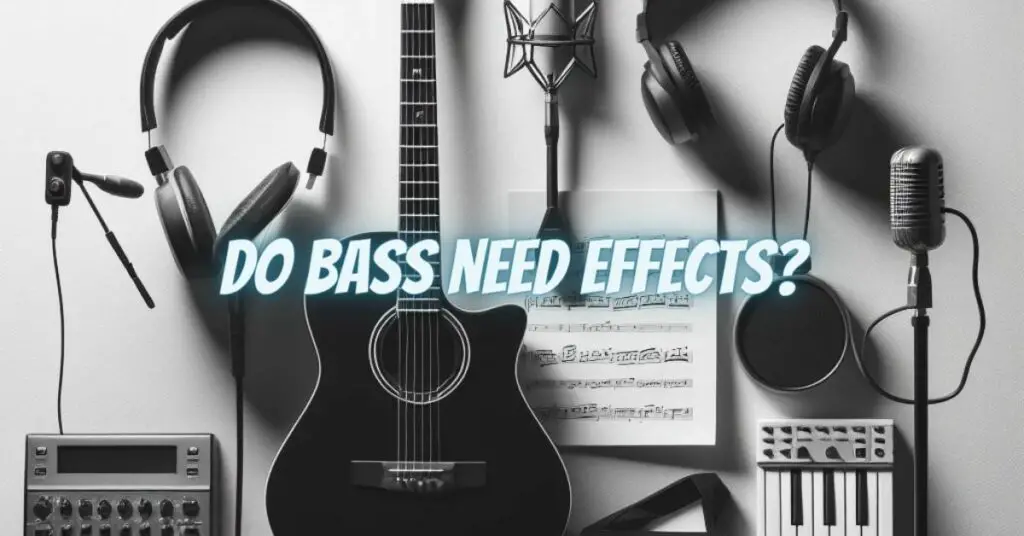Whether or not bass needs effects is a matter of personal preference. Some bassists prefer to use a clean, unadulterated sound, while others like to use effects to enhance their sound or create new and interesting timbres.
There are a variety of effects that can be used on bass, including:
- Compression: Compression can help to even out the volume of the bass signal and make it sound more consistent.
- Overdrive: Overdrive can add grit and distortion to the bass sound.
- Distortion: Distortion can add even more grit and distortion to the bass sound, creating a heavier and more aggressive sound.
- Fuzz: Fuzz is a type of distortion that creates a very thick and saturated sound.
- Chorus: Chorus can add a sense of depth and width to the bass sound.
- Flanger: Flanger creates a sweeping effect that can add a sense of movement to the bass sound.
- Phaser: Phaser creates a similar effect to flanger, but with a different sound profile.
- Octaver: Octaver can add an octave below the bass signal, creating a fatter and more powerful sound.
- Envelope filter: Envelope filter can create a variety of effects, such as auto-wah and funk filter.
- Delay: Delay can add echoes to the bass signal, creating a sense of space and depth.
- Reverb: Reverb can add a sense of ambience to the bass sound.
These are just a few of the many effects that can be used on bass. There are also many other effects available, such as synths, pitch shifters, and modulators.
Ultimately, the decision of whether or not to use effects on bass is up to the individual bassist. There is no right or wrong answer, and it is important to experiment with different effects to find what sounds best to you.
Here are some tips for using effects on bass:
- Start with a clean sound and add effects one at a time. This will help you to hear how each effect affects the sound of your bass.
- Don’t be afraid to experiment. There are no rules when it comes to using effects on bass. Try different combinations of effects to create new and interesting sounds.
- Be mindful of the volume of your effects. It is important to set the volume of your effects so that they do not overpower the natural sound of your bass.
- Use a pedalboard to organize your effects and make them easy to use.
By following these tips, you can learn to use effects to enhance your bass sound and create new and interesting musical possibilities.
Here are some examples of bassists who use effects:
- Flea (Red Hot Chili Peppers) uses a variety of effects on bass, including overdrive, distortion, fuzz, chorus, flanger, and delay.
- Les Claypool (Primus) uses a variety of effects on bass, including envelope filter, fuzz, and delay.
- John Entwistle (The Who) used a variety of effects on bass, including distortion and fuzz.
- Geddy Lee (Rush) used a variety of effects on bass, including chorus, flanger, and delay.
- Chris Wolstenholme (Muse) uses a variety of effects on bass, including overdrive, distortion, and fuzz.
These are just a few examples of many bassists who use effects to enhance their sound and create new and interesting music. If you are interested in using effects on your bass, I encourage you to experiment and find what sounds best to you.


